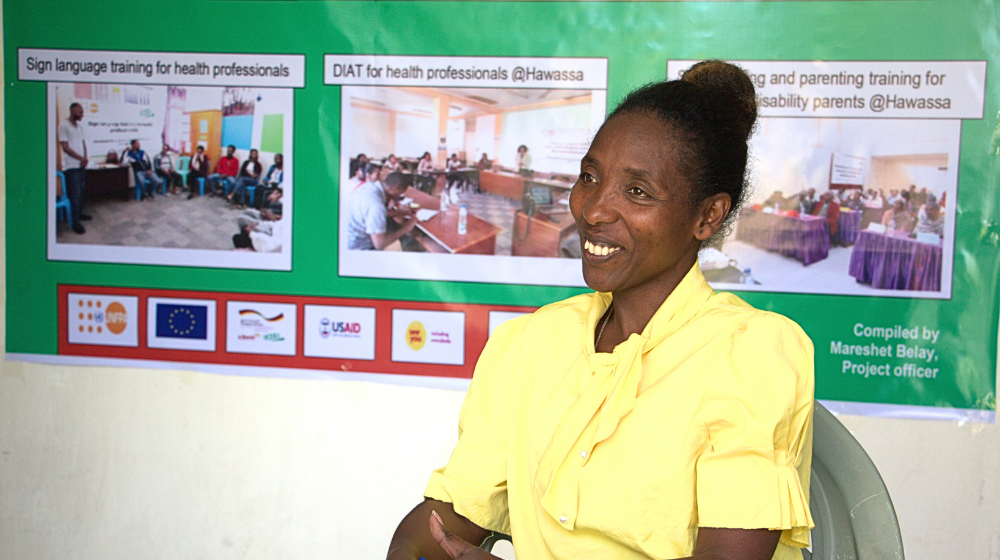Hawassa, Sidama Region, ETHIOPIA - Beteledet Abraham is the Executive Director of the Association of Women with Disability in Hawassa Town. She became part of the Ethiopian Center for Disability and Development (ECDD) peer-to-peer discussion sessions three years ago and is now serving as a facilitator raising the awareness of young people with disabilities on issues such as Sexual and Reproductive Health, life skills, and gender-based violence. She is very happy to look back and reflect on the great strides that are being made in empowering young people with disabilities.
“We meet every month in the peer-to-peer discussion sessions, and we share our respective life experiences during the discussions,” Beteledet says, mentioning that an average of 25 to 30 young people with disabilities gather in the discussion sessions at a time.
Young people with disabilities face quite a lot of challenges in accessing comprehensive sexual and reproductive health information and services as well as protection services. These challenges are driven by various barriers including physical, behavioural, communication, economic, and others infringing the rights of persons with disabilities.
UNFPA’s partnership in empowering young people with disabilities
People with disabilities make up a significant proportion of the population that is most disadvantaged socially and economically. Approximately 17.6 % of Ethiopia’s population lives with disabilities where the majority are young people.
Marshet Belay, SRH Project Officer at the Regional Coordination Office of ECDD in Hawassa, Sidama Region, says that through UNFPA’s support ECDD is implementing a project called SRH+ which aims at empowering young people with disabilities with information and quality services. As part of the project efforts are being made on improving access to integrated sexual and reproductive health and rights and gender-based violence services for young people with disabilities.
One key initiative being supported on the provision of information to encourage service seeking behaviour and utilization by young persons with disabilities is the digital platform called Minch (source in English). “This toll-free platform has been instrumental in providing persons with disabilities with vital information on SRH and GBV,” notes Marshet.
The digital information provision platform and peer-to-peer education sessions are playing an important role in empowering young people with disabilities to make informed choices about their SRHR and building their confidence to seek services. They have now started to stand for their rights and are seeking services at different institutions.
Capacity building and sensitization of service providers
“The big challenge for young people with disabilities who mustered the courage to go to health institutions was disclosing their problems to health professionals due to the stigma,” indicates Beteledet. She underscores that the peer-to-peer discussions have proven to be vital in boosting their confidence to seek and use services. The successive capacity building and sensitization works done on service providers was also critical in this as it has resulted in meaningful attitude changes among the service providers which is encouraging young people with disabilities to seek and use services.
In responding to gender-based violence, ECDD with support from UNFPA, is providing legal aid services up to filing charges against perpetrators and in the court of law. Survivors also get psychosocial services and are referred to health institutions to get medical services, including services at the One Stop Center at Adare Hospital. In the peer-to-peer discussion sessions persons with disabilities are getting awareness as to what they should do and where they should go in the event of encountering gender-based violence which has resulted in the cases being increasingly reported.
“I and some other members of our association have repeatedly received threats on our lives from perpetrators because of our efforts in helping survivors of gender-based violence seek justice,” states Beteledet. She says that this has not deterred her from doing her work in any way as she is driven by the difference she is making in the lives of young people with disabilities.


